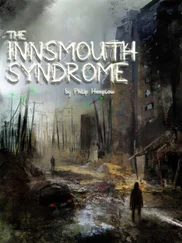1 ...6 7 8 10 11 12 ...28 ‘What’s going on?’ Susan asked.
‘Some sort of epidemic.’ Ingrid turned to face Susan. ‘Probably the flu. The media are hyping it as usual. Where’s Dad?’
‘Watching his tape of Michael. He wants peanuts.’
‘No way. I’ll handle this.’
As Ingrid was moving toward the living room Susan heard the front door open. Her eyes lit up as she went to greet Michael. He gave her a long hug and kiss.
‘Where’s Dad?’
‘Watching you on TV.’
‘Again? Doesn’t he ever get enough?’
She watched him hang his coat in the closet. He had changed clothes at his office, and wore slacks and a light sweater. A breath of the outside air had come in with him, and his cheeks were cool against her lips.
‘I talked to Stew today,’ he said.
‘How is he?’ Susan asked.
‘Great,’ Michael said. ‘He sends you his love.’ He was hanging back, not moving toward his father’s den, because he could not let Judd hear him mention the name of his older brother in the house.
‘Did he see you on TV?’ Susan asked.
Michael nodded.
‘Was he favorably impressed?’ she asked.
‘If he wasn’t, he probably wouldn’t have told me.’
As the oldest of the Campbell children Stewart commanded Michael’s respect. Stewart was at the opposite end of the political spectrum from his father. If Judd was a stern judge of Michael’s ambition, Stewart was the judge of his integrity. Stewart hated politicians but made an exception for Michael, whom he considered a huge cut above the rest in character and brains.
Susan and Michael exchanged a brief look. They were both sad that Stewart could not be here tonight. Even though Michael’s career was a common link between Judd and Stewart, the rift between the two was too deep for Michael to bridge.
‘Hey, Ing,’ Michael greeted his sister, hugging her around her broad shoulders.
‘Hey to you, big shot.’ Ingrid smiled. ‘Nice work today.’
As Susan watched, Michael went to the door of the den and looked in at his father. Judd had not heard Michael’s arrival and was glued to the TV, watching his son’s image. Michael went forward and, with an odd gentleness, put his arm around his father and kissed his cheek.
‘Ah. Here you are.’ Relief joined with an almost painful devotion in the father’s voice as he held Michael’s arm. Strangely, Judd did not turn his eyes away from the TV. He remained focused on the abstract image of his son while holding Michael’s hand to keep him from getting away. Susan dared to reflect that this schizoid intimacy was part and parcel of Judd’s love for his son.
Michael glanced back at Susan with an understanding smile, as though to say, ‘You know what Dad is like.’ Nodding, Susan turned away.
In the kitchen Ingrid was whipping the potatoes. The news report on the situation in Iowa was over, eclipsed by a story about violence in the Middle East.
‘Sweetie,’ Ingrid said to Susan, ‘would you finish this for me while I get the roast out?’
The phone rang. Since both women were busy Michael answered it. His face clouded as he listened to the caller.
‘When did this happen?’
Susan turned to look at him. She knew that voice. It meant something serious.
‘Where is he now?’ Michael said into the phone.
Through the dining room Susan could see Judd, who was still absorbed in his videotape. Michael hung up the phone.
‘What’s the matter?’ Susan asked.
‘Danny Everhardt,’ Michael said. ‘He was taken sick late this morning. They took him to Walter Reed.’
‘Sick in what way?’ Susan asked.
‘Something strange,’ Michael said. ‘He can’t move, can’t talk. His secretary found him on the floor of the bathroom, half in and half out of the shower. He hasn’t said a word since.’
Susan looked at Michael. The TV still murmured in the kitchen. Outside the house a gull shrieked, once, and was gone over the waves.
Walter Reed Army Medical Center
Gaithersburg, Maryland
8 P.M.
Dan Everhardt was discovered by his secretary ten minutes after the onset of his illness. Alarmed by his failure to emerge from the still-running shower, she opened the door and saw him lying under the spattering water, his eyes still open.
Within the hour the vice president was taken to Walter Reed, where he was placed under observation in the intensive care unit. His vital signs were normal, but he continued to display symptoms of a massive disturbance of function whose precise characteristics were difficult to pin down.
The night of his admission his primary physician received a visit from a Secret Service agent named Joseph Kraig.
‘Dr Isaacson,’ Kraig said, shaking the physician’s hand. ‘Thank you for making time to see me.’
‘We received a call from the White House asking us to cooperate with you in every way possible,’ the doctor said, not looking very happy about Kraig’s presence. ‘It seemed only reasonable to go along.’
The doctor studied Kraig, who was a deceptively ordinary-looking man in a dark suit. Kraig looked to be in his late thirties, prematurely gray at the temples, with shoulders and arms that bespoke good physical conditioning. He had quiet eyes whose neutral expression suggested a coiled inner force kept carefully hidden. Something about him was frightening; something else was reassuring. It was hard to tell the difference.
‘What can you tell me about the vice president?’ Kraig asked.
‘Well,’ said the doctor, ‘it’s very ambiguous. At first we suspected a stroke. There is a rather dramatic impairment of mental function. But the tests we’ve done so far – EKG and so forth – don’t indicate any circulatory problem. I’m leaning toward the functional, but I’m far from sure.’
‘Functional?’ Kraig asked.
‘By that I mean a mental or emotional disturbance without a physical basis,’ the doctor said. ‘Of course, it’s too soon to say.’
‘Could you show me?’ Kraig asked.
‘I’d rather not,’ the doctor said. ‘It wouldn’t be appropriate for anyone outside the family …’
‘Has the family seen him?’ Kraig asked.
‘Only his wife. She didn’t think it would be good for the children to —’
Agent Kraig moved closer to the doctor and spoke in a low voice.
‘I understand your concerns, Doctor. But it is important that I get a clear view of the situation right away. Would you like me to have the head of the Secret Service call you?’
The doctor sighed. ‘No, let’s get it over with. Let me see if he’s awake first.’
The doctor left Kraig to wait in the corridor and disappeared into the hospital room. After a couple of minutes he emerged.
‘Come on in.’
Kraig followed the doctor into the room. Vice President Everhardt was propped up in the hospital bed, looking at the television screen on the ceiling. Not for the first time Kraig noticed the vice president’s size. He had the bulk of a football player.
‘Mr Vice President, I’d like you to meet someone,’ Dr Isaacson said. ‘This is Agent Kraig. He’s with the Secret Service.’
Everhardt looked at Kraig. There was something wrong with the expression in his eyes. Kraig could not put it into words, but the gaze didn’t seem lucid. The eyes seemed elsewhere.
‘That’s Kraig with a ‘K,’ Mr Vice President,’ Kraig said, moving forward to extend a hand.
Everhardt ignored the outstretched hand. He kept looking at Kraig for a few seconds, then looked back at the TV screen, on which an old Arnold Schwarzenegger movie was playing.
‘You can call me Joe if you like,’ Kraig said. ‘Everybody does.’
Читать дальше












